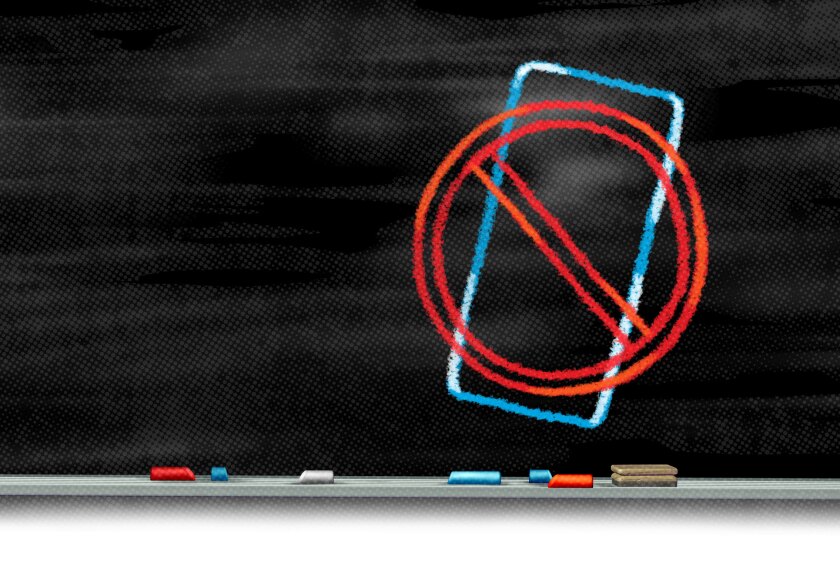Two U.S. senators—one Republican and one Democrat—have introduced legislation that would require a federal study on the effects of cellphone use in schools on students’ mental health and academic performance.
The Focus on Learning Act, introduced by Sens. Tom Cotton, R-Ark., and Tim Kaine, D-Va., would require the U.S. Department of Education to study the impact of cellphone use on students’ academic performance, engagement, mental health, behavior, as well as its effects on classroom instruction and school climate. The legislation does not specify the scope of the research, but directs the education department to issue findings to Congress.
The legislation also calls for establishing a pilot program that would award grants to school districts that agree to create a cellphone-free school environment. Those pilot programs would also be studied and analyzed to understand the effects of schools that are cellphone-free.
The proposed legislation comes as an increasing number of schools and districts are tightening cellphone restrictions. In 2015, 66 percent of U.S. schools had cellphone bans, according to the National Center for Education Statistics. By 2020, the percentage of schools with bans had jumped to 77 percent. Some states, such as California, Tennessee, and Florida, have passed laws allowing schools to restrict cellphone use.
While a common motivation for schools to prohibit phone use has been to eliminate a major source of distractions, another has been to help students’ mental health by reducing a source of stress and anxiety, and shrinking a conduit for online bullying.
“Widespread use of cellphones in schools are at best a distraction for young Americans; at worst, they expose schoolchildren to content that is harmful and addictive,” Cotton said in a press release. “Our legislation will make schools remain centers of learning.”
Kaine added in the joint press release that this bill would help schools in their recovery from the pandemic and help students “overcome learning loss.”
Educators at schools that have banned cellphone use in the classroom have anecdotally said that it has increased student engagement and improved student well-being. Educators have also heard from some students that welcome the restrictions because it helps them be less reliant on their phones.
Here’s how the pilot program would work, according to the bill text:
- Participating schools would be given grants to purchase secure containers to store students’ phones during school hours. Student cellphone use would be prohibited during the school day, including at lunch and in between classes. There would be exceptions for students with health conditions or disabilities, and non-English speakers.
- When applying for the program, districts would need to seek input from parents, students, and educators in determining which schools would participate in the pilot.
- Schools participating in the pilot program would need to put a communication system in place to allow school staff to contact local emergency responders. They would also need to have a clear process for students to contact their parents.
- The cellphone storage containers would be controlled by school administrators.
While it’s unclear how much traction the bill will receive in the Senate, some educators are on board.
“NASSP applauds the bipartisan effort to support research needed around the effects and mental health impact of cell phone use on students,” Ronn Nozoe, the CEO of the National Association for Secondary School Principals, said in an email. “Including input from educators and funding communication systems with emergency responders acts as both an intervention strategy and protection for students and educators throughout each school day. We look forward to supporting the pilot program and providing input from school leaders.”









